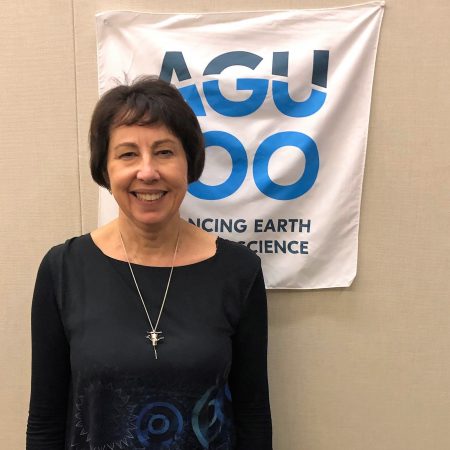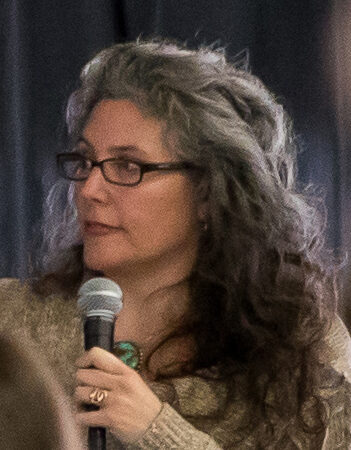Refine
Date Range Clear
Recorded by Clear
Keywords Clear
- geohealth 247
- 1936 Tupelo–Gainesville tornado 247
- #AGU100 247
- #womeninscience 48
- #AGU 217
- NASA 71
- discovery 70
- Advice 29
- 533 more
Partnerships Clear
- No matching terms.
Organizations Clear
- American Geophysical Union 83
- NASA 18
- National Aeronautics and Space Administration 9
- AGU 8
- The American Geophysical Union 5
- 16 more
Places Clear
Languages Clear
Initiatives Clear
- No matching terms.
Having an idol is important in science so you can see yourself doing something similar. Gregory Cutter met his idol, Jacques Cousteau, when he was an assistant professor at Old Dominion University. As an oceanography professor, he worked with different...
Alan Gorchov Negron and Colten Petersen, University of Michigan, share their stories of becoming scientists, and their hopes for their continued research and involvement in geosciences. What is the role of an earth scientist? What is the role of climate...
Paul Stackhouse is a sun chaser, but in his case it means measuring the surface radiation budget. This means figuring out how much sunlight gets to the surface of the planet, and takes a deep understanding of factors like cloud...
As a deputy section manager at NASA’s Jet Propulsion Lab, Carmen Boening is keenly focused on rising with the tide. The trouble is, the water level isn’t going down as the climate warms. Partly through the monitoring of a set...
Dawn Wright, ESRI and Mark Parsons, Rensselaer Polytechnic Institute, share with us their journeys into data mapping, and how the field has grown, including at AGU. Before AGU embraced mapping scientists, people were starting to leave AGU. Now, they’re back,...
Bernard Chovitz has seen it all when it comes to geodesy. From before it was an official field in the early 40s to being one of many AGU sections today, Bernard talks about how the field and science in general...
Let’s say you’ve been involved in a project that has produced over 70 publications. Let’s say that project has spanned half your life. Let’s say you had to cross nations, endure tough conditions and delays, and negotiate a sometimes very...
Joseph Westlake is a research scientist at the John Hopkins Applied Physics Lab, and is an expert in plasma and mass spectrometry experimentation. Listen to Dr. Westlake talk about his start in science, the importance of mentorship, and what inspires...
Frank Schwing oversees the science information division at NOAA and is particularly proud of his transition from doing science to becoming a manager of science. He says, “Working for a federal agency, one of the demands is to make [the...
In research, Dalia Kirschbaum literally seeks landslide victories, though in her case this entails finding disasters. The research scientist at NASA’s Goddard Space Flight Center uses satellite monitoring to get clear predictions about actual landslides through satellite information. “My work...
Dr. Lin Chambers is the Deputy Director of Science Activation at NASA Headquarters, and she spends her time there sharing NASA’s science with learners in local communities across the country. Lin started at NASA after her freshman year of college...
Alex Young has a great finger on the weather. But the Associate Director for Science in the Heliophysics Science Division at NASA's Goddard Space Flight Center’s attention is focused far higher than any storm cloud. He studies space weather and...
Richard Alley is a professor in glaciology and loves what he does. He talks about gathering ice cores from Antarctica as an undergraduate, only to return for his PhD and continue the work. He’s measured fallout from atomic bombs tests...
Alice Hill talks about her work at Stanford University's Hoover Institute on mitigating risk from natural hazards. She discusses her work in the Obama Administration running climate change programs for the Department of Homeland Security. She also worked at the...
Thomas Wagner, NASA's Program Scientist for the cryosphere, discusses how his life has developed to study the Arctic and Antarctic. Even though as a student he initially found himself bored by studying glaciology, he soon discovered a passion for polar...
Sabrina Savage builds instrumentation for solar physics and studies solar flares at NASA’s Marshall Space Flight Center. The technology she helps create delivers the most high-resolution pictures of the sun anyone has ever seen. In a society more dependent upon...
Nearing the end of her career, Anne Douglass, at NASA Godard Space Flight Center, has provided the scientific community with a better understanding of the ozone layer that protects us all from ultraviolet radiation. Anne describes the energy that it...
Richard Stolarski, research professor shares the journey of his involvement with the movement to address ozone depletion. He discusses how a multi-disciplinary team of scientists came together to heal the ozone layer, and how the world came together with the...
Bärbel Hönisch, Associate Professor of Environmental Sciences at Columbia University also known as Queen of Boron, transported us millions of years beyond the ice cores to the realm when Greenland had no ice. She took hold of a magical instrument...
Laurie Brown, Professor Emeritus at the University of Massachusetts, has been a member of AGU for 46 years. She shares her observations on the growth of paleomagnetism at AGU and its importance in helping address climate. She also discusses how...
Jacob Bleacher has spent a great deal of time preparing for Mars and the moon, even though he has never left the Earth’s orbit. The research scientist at Goddard Space Flight Center is currently on detail at NASA Headquarters as...
Giovanni Fazio is a senior physicist at the Center for Astrophysics Harvard-Smithsonian. In his decades-spanning career, he has been instrumental in several observational programs, from his work studying gamma rays using balloon-borne telescopes to his time as the Principal Investigator...
Michele Koppes and Heidi Roop met “on an incredible landscape on the edge of the Greenland ice sheet about two years ago.” The conversation that followed made both of them think more closely about the value of science communication and...
Just a few short months ago, Nicola Fox took over as Director of NASA’s Heliophysics Lab. She’d been prepping for the role a lifetime, however, recounting how she started her scientific career when she was eight months old, thanks to...
Daniella Scalice is the Education and Communications Lead for NASA’s Astrobiology program, and she sits in NASA’s MAIANSE program for incorporating American Indian and Alaska Native science into NASA’s STEM research and education initiatives. She works in western and Indigenous...
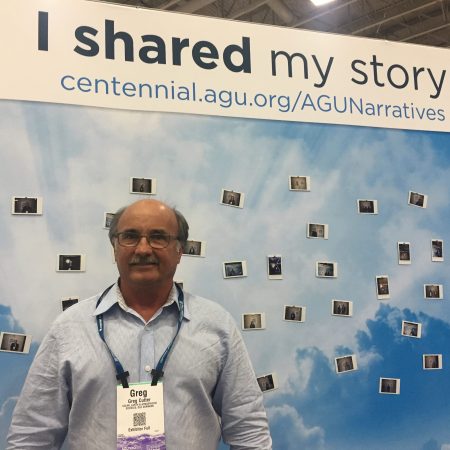
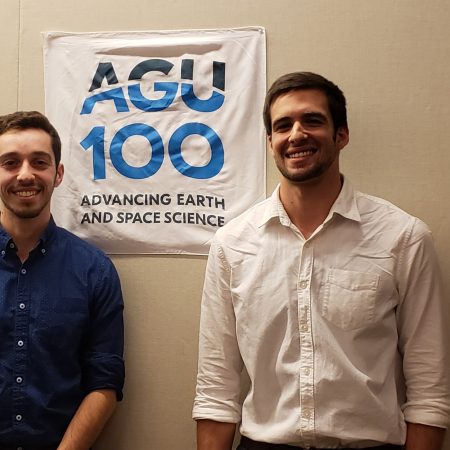
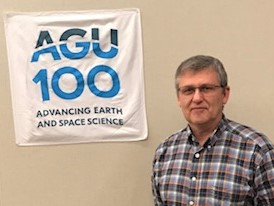
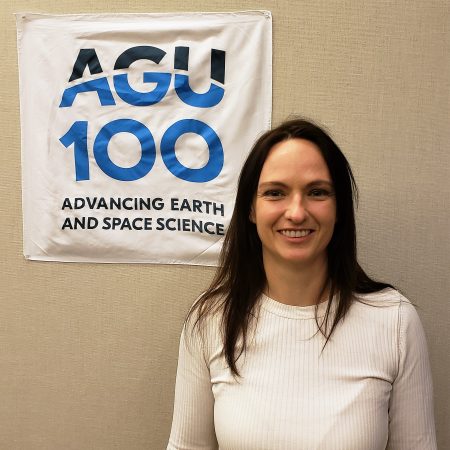
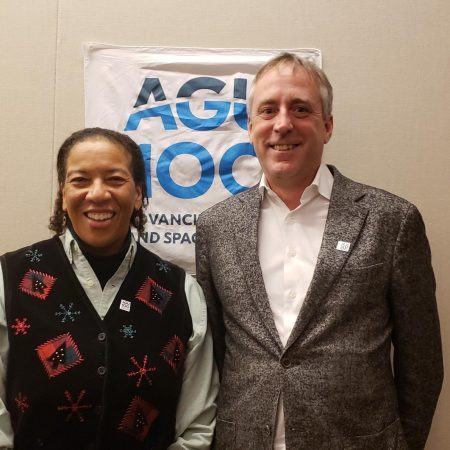
![“I am very proud to be in the same issue [of Time Magazine] with Marilyn Monroe on the cover.” An interview with Bernard Chovitz](https://archive.storycorps.org/uploads/2019/07/181213_Chovitz_Booth-450x450.jpg)
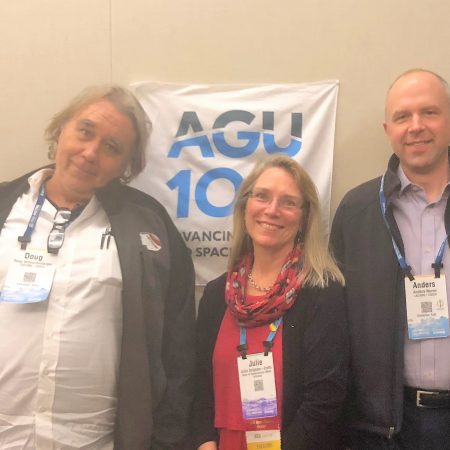
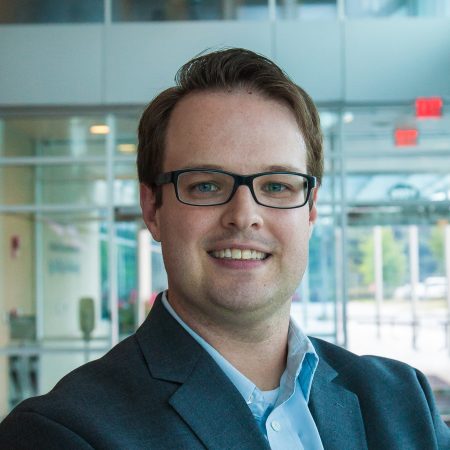
![“We've never had a [unified ocean] policy until the Obama administration; it was quite satisfying work .” An interview with Frank Schwing](https://archive.storycorps.org/uploads/2019/08/181212_Schwing-450x450.jpg)
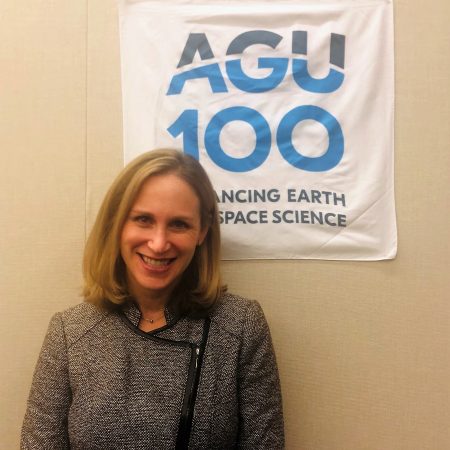
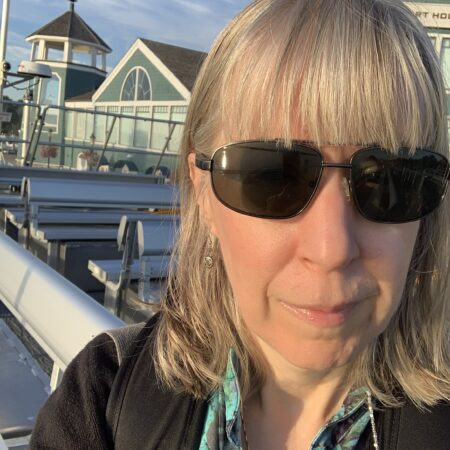
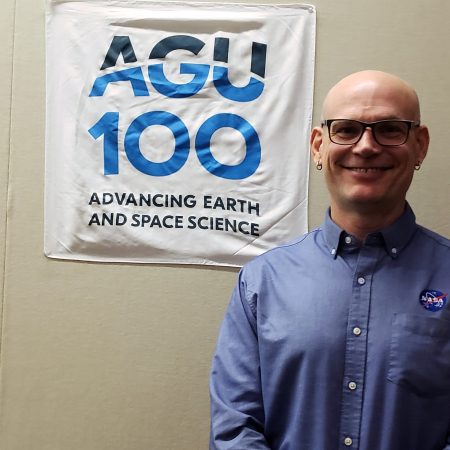
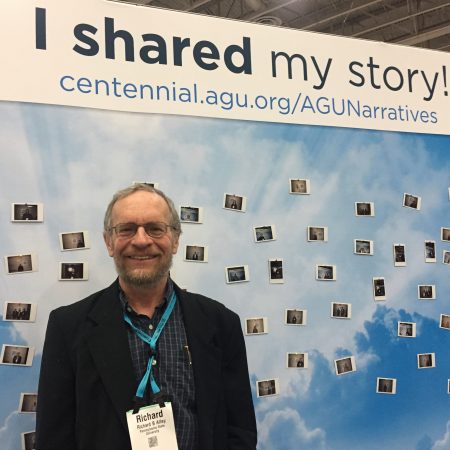
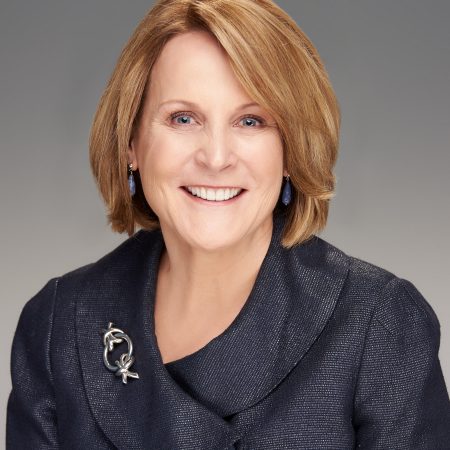
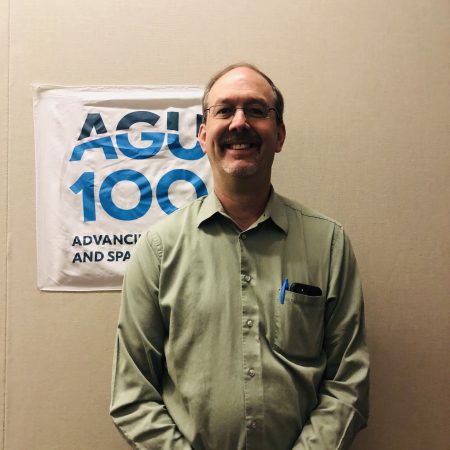
!["The sun is a terrifying and beautiful laboratory of which we know only a little [about]." an interview with Sabrina Savage](https://archive.storycorps.org/uploads/2019/02/20181213_Savage-450x450.jpg)
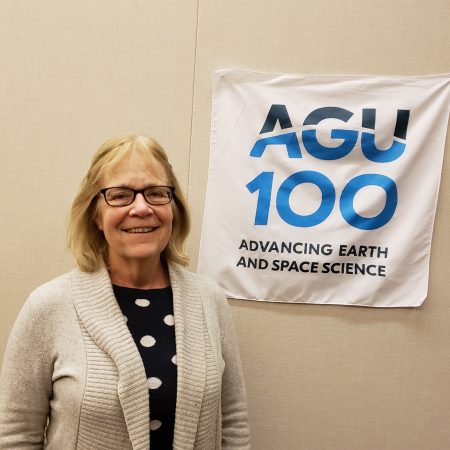
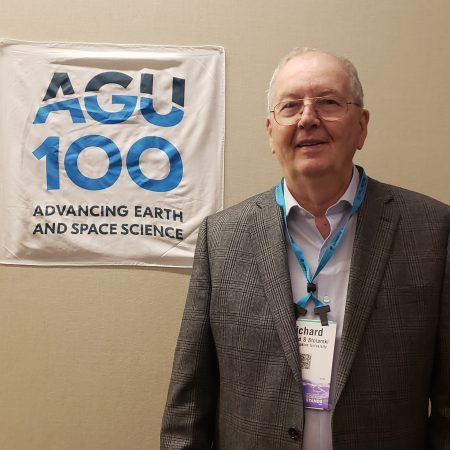
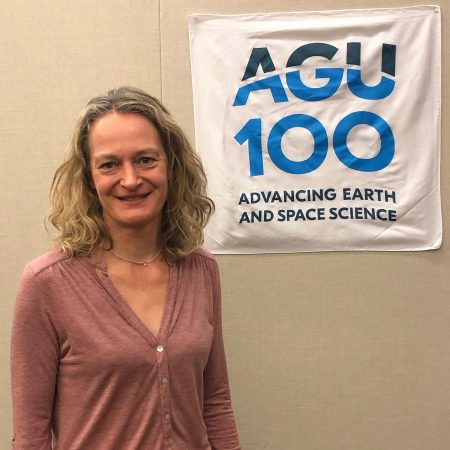
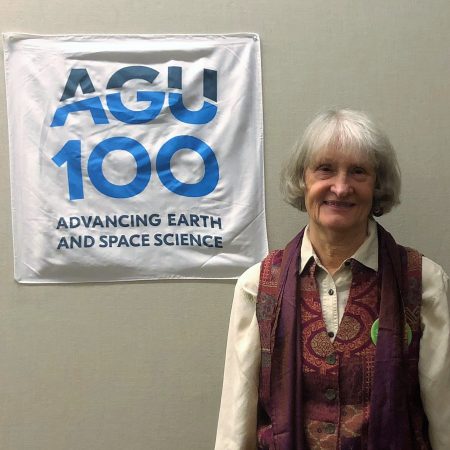
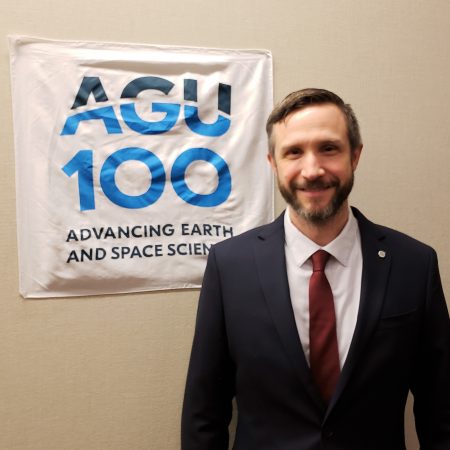
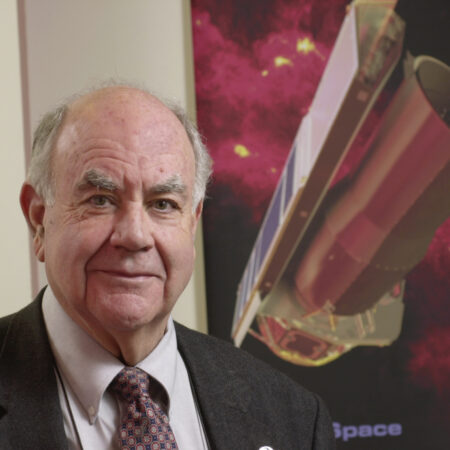
![“How is it that we collect stories [and] create spaces for those stories to be told?” An interview with Michele Koppes and Heidi Roop](https://archive.storycorps.org/uploads/2019/07/181212_Koppes-and-Roop_Booth-450x450.jpg)
